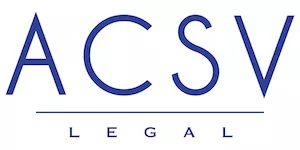- in European Union
- within Government, Public Sector and Real Estate and Construction topic(s)
1. TRANSACTION ACTIVITY
1.1 M&A Transactions and Deals
Small Volume, Large Potential
Vietnam is still a relatively nascent market for private equity (PE). Deal sizes are often small (although getting bigger) and transaction structuring and procedures are complex and time consuming.
As in many other jurisdictions, 2021 has been a very challenging year for PE investors in Vietnam. The global impact of COVID-19 has been severe, and while Vietnam has managed the pandemic commendably, the vaccination roll-out remains, at the time of writing, in its early stages. The authorities are also being compelled to strictly control a more widespread pandemic resurgence, resorting to travel restrictions (both domestic and international), quarantine, social distancing, stay-at-home orders, and curfews.
Consequently, PE funds have faced harsh operating conditions so far this year, especially those with existing portfolio investments in exposed sectors (eg, real estate, hospitality, retail, and related supply chains, etc), and have, in many cases, been forced to make difficult funding decisions, as local portfolio companies' cash flows have become exhausted.
Of course, unlike many other jurisdictions, Vietnam's national balance sheet did not afford the government the luxury of stepping in with comprehensive fiscal measures to protect employment in these sectors, which has meant that PE investors have been forced to either write off investments or find new capital – not an easy task for limited partners (LP) stung by the global COVID-19 crisis, and looking to reduce emerging market liability exposure. The same capital-raising constraints have vexed leveraged buy-out funds this year, who entered deals at lofty valuations (at low-to-mid teen forward EBITDA multiples) with highly geared equity investments.
Consequently, for those portfolio companies that survive 2021, it is likely that EBITDA margins and exit multiples will be reduced, exit horizons extended, internal rates of return (IRRs) suppressed, and carried interests squeezed.
Despite these challenges, it has not all been doom and gloom, and perhaps unsurprisingly, some PE investors have used the difficult business conditions to invest at more attractive valuations in the hope of a steep post-COVID-19 recovery. In addition to opportunistic PE, the trend continues for regional PE to seek exposure to certain industry sectors in Vietnam, including but not limited to, real estate, logistics, healthcare, education, manufacturing, supply chain and infrastructure.
There has also been a notable uptick in venture capital activity, especially with investments into the digital economy (e-commerce, fintech, etc). Vietnam has a tech-savvy and highly entrepreneurial population which has a need for alternative access to financing. In fact, technology start-ups attracted the most attention in the local PE market in 2021.
Favourable Laws and Policies
The Vietnamese government remains committed to increasing the ease of doing business for foreign investors in Vietnam and it is taking progressive steps to enhance administrative transparency and to reduce procedural hurdles. Privatisation of government-owned enterprises and stricter corporate governance requirements for locally incorporated entities have also contributed to the number of investable targets.
Added Value for Local Businesses
PE brings significant value to local Vietnamese businesses; PE money not only provides Vietnamese targets with much-needed growth capital to consolidate and expand their business operations, but it also provides healthy controls and constraints to focus the use of the investment capital for optimal growth and value creation. This added layer of operational supervision and corporate governance lends institutional legitimacy to businesses, which eventually enhances their future exitability to trade buyers or buyout funds. Cash flow and financing often pose inhibiting obstacles to young entrepreneurs, who do not have much of their own equity to bring into their businesses.
PE investors should be aware that much of the sophistication, financial engineering and exit-driven structuring implicit in PE may be lost on local business owners. Care should be taken to ensure that the owners and management teams truly understand the nature of the investment.
Opportunity through Crisis
All things considered, during 2020 and early 2021, Vietnam weathered the COVID-19 storm relatively well, and as such, it attracted significant PE investment during the pandemic. Recently, however, events have taken a turn for the worse, and the impact of the pandemic has become more severe; it remains to be seen how the effects of this resurgence will unfold. For now, it is hoped that the government will handle the vaccination roll-out with the same centrally planned efficiency as it did the initial containment of the disease.
1.2 Market Activity
Buyouts and Venture Capital on the Rise
Generally, PE-funded growth equity and buyouts are the most common types of transactions in Vietnam, although venture capital (VC) activity, albeit with smaller deal sizes, has been on the increase.
Most PE investing is done by making direct investments into private companies; however, many individual investors prefer the liquidity of Vietnam's listed equities exchanges.
While mergers do play a role in Vietnamese M&A, they are uncommon among foreign direct investors.
2. PRIVATE EQUITY DEVELOPMENTS
2.1 Impact on Funds and Transactions
New Law on Investment
The year 2021 has seen some changes in investment restrictions resulting from the new Law on Investment which came into force at the beginning of the year. As is customary in Vietnamese legislation, implementing regulations have specified the implications of the new investment law in the first half of 2021.
Free trade agreements with neighbouring countries have had a direct effect on regulatory thresholds for foreign investment into certain local industries and have enabled investors to acquire majority shares in previously restricted or conditional business lines. As there are not many PE companies – both local and international – holding stakes in Vietnamese companies and actively engaged in Vietnamese transactions, some industries see a lingering undersupply of capital.
Remarkable Synergies between Local Entrepreneurs and Foreign Capital
New laws and multinational treaties have also opened up new business sectors to foreign investment, which is expected to increase foreign investment interest. As the Vietnamese market diversifies, it is also becoming more accessible and receptive to foreign (venture) capital. Vietnamese companies have a tangible need for guidance and cash to expand their market share and grow revenues. Local targets are available at competitive prices, even when taking into consideration higher deal volatility and transaction costs. Lower deal volumes make liabilities and returns more attractive. Working together with a foreign investor and partner can therefore produce remarkable success stories, as can be seen in some prominent examples.
Click here to continue reading . . .
Originally published by Chambers Global Practice Guides.
The content of this article is intended to provide a general guide to the subject matter. Specialist advice should be sought about your specific circumstances.





